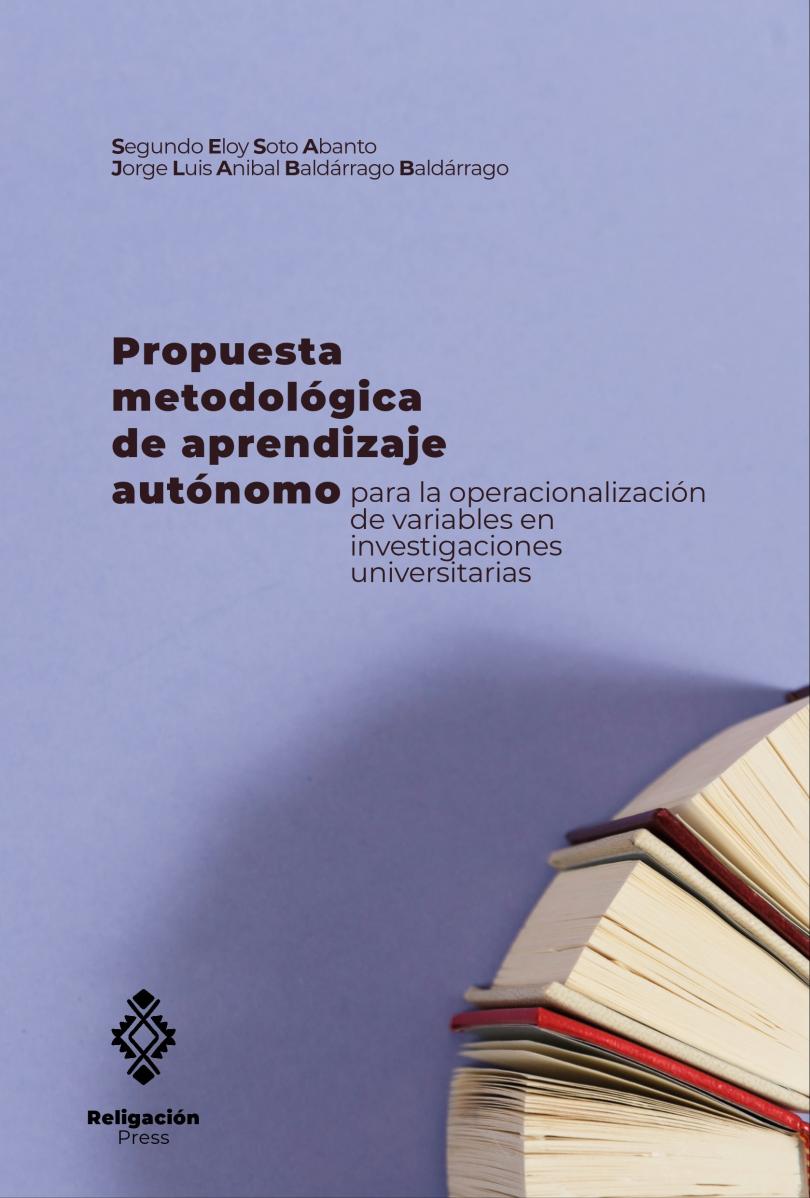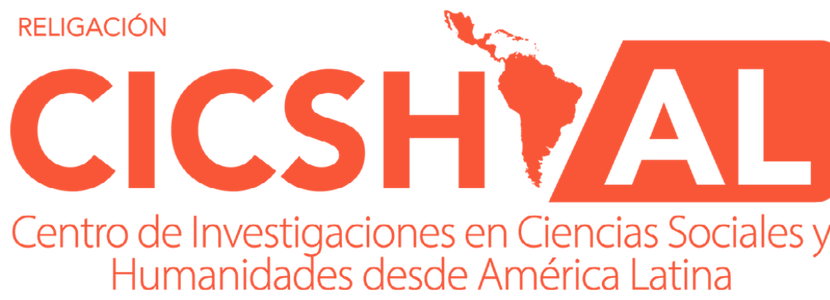Methodological proposal for autonomous learning for the operationalization of variables in university research
Keywords:
Research methodology; mnemonics; self-learning; educational proposals.Synopsis
Promoting research for sustainable industrialization, fostering innovation, developing infrastructures and technologies are the main goals linked to sustainable development objective nine: "industry, innovation and infrastructure". Given this, in the present research it was determined whether the methodological proposal designed allowed university students to identify the dimensions and indicators of the variables in an autonomous research. The proposal was designed considering a mnemonic, in order to memorize four phases: defining the variable, identifying codes, defining dimensions and establishing indicators. For the validation of the proposal, an experimental design of quasi-experimental type was considered, considering an experimental group and a control group. Each group consisted of 23 university students, and after applying the Mann-Whitney U test, it was found that there is a highly significant difference between the groups. It was concluded that the methodological proposal allows to identify the dimensions and indicators of an investigation in an autonomous and correct way.
Downloads
References
Aiquipa, J., Ramos, C., Curay, R., & Guizado, L. (2018). Factores implicados para realizar o no realizar tesis en estudiantes de psicología. Propósitos y representaciones, 6(1), 21-82. http://dx.doi.org/10.20511/pyr2018.v6n1.180
Alarco, J., Aguirre-Cuadros, E., Aliaga-Chávez, Y., & Álvarez-Andrade, E. (2010). Factores asociados a la realización de tesis en pregrado de Medicina en una universidad pública del Perú. CIMEL Ciencia e Investigación Médica Estudiantil Latinoamericana, 15(2), 66-70. https://www.cimel.felsocem.net/index.php/CIMEL/article/view/137/94
Aldana-Bernal, J.C., & Bernal-Torres, C.A. (2018). Soft Factors in the Management of Integration Supply Chains and/or Networks: Approximation to a Conceptual Model. Información tecnológica, 29(2), 103-14. https://dx.doi.org/10.4067/S0718-07642018000200103
Amasifuen, M. (2016). Importancia de la cultura tributaria en el Perú. Revista de Investigación de Contabilidad Accounting power for business, 1(1). https://revistas.upeu.edu.pe/index.php/ri_apfb/article/view/898
Argimon, J.M., y Jiménez, J. (2004). Métodos de investigación clínica y epidemiológica (3ª ed.). Elsevier.
Armas, M., & Colmenarez, M. (2009). Educación para el desarrollo de la cultura tributaria, Revista Electrónica de Humanidades, Educación y Comunicación Social, 6(4), 123-148.
Arriazu, R. (2007). ¿Nuevos medios o nuevas formas de indagación?: Una propuesta metodológica para la investigación social on-line a través del foro de discusión. Forum Qualitative Sozialforschung / Forum: Qualitative Social Research, 8(3). https://doi.org/10.17169/fqs-8.3.275
Bird, M., Tolan, J., & Carter, N. (2019). Baccalaureate Nursing Students’ Perceptions of Learning in Mentored and Simulated Research Practica. Journal of Nursing Education, 5(58), 290-93. https://doi.org/10.3928/01484834-20190422-07
Brooks Carthon, J.M., Holland, S., Gamble, K., Rothwell, H., Pancir, D., Ballinghoff, J., & Aiken, L. (2017). Increasing Research Capacity in a Safety Net Setting Through an Academic Clinical Partnership. JONA: The Journal of Nursing Administration, 47(6), 350–55. https://doi.org/10.1097/nna.0000000000000491
Campos, A., Pérez-Fabello, M., Camino, E. (2010). Eficacia de la mnemotecnia de la palabra clave en personas adultas. Psicothema, 4(22), 752-57. https://www.redalyc.org/articulo.oa?id=727/72715515034
Carney, R. (2011). Mnemonic Device. En S. Goldstein, & J. Naglieri, (eds), Encyclopedia of Child Behavior and Development. Springer. https://www.doi.org/10.1007/978-0-387-79061-9_1810
Cárcel, F. (2016). Desarrollo de habilidades mediante el Aprendizaje Autónomo. 3C Empresa, 5(3), 52-60. http://dx.doi.org/10.17993/3cemp.2016.050327.52-60
De Moll, E., Routt, E., Heineken, G., Tsui, C., & Levitt, J. (2015). The use of an imagery mnemonic to teach the porphyrin biochemical pathway. Dermatology Online Journal, 4(15). https://doi.org/10.5070/D3214026263
Escudero, E. (1985). Las actitudes en la enseñanza de las ciencias: un panorama complejo. Revista de Educación, 278(sep-dic).
Espinoza, E. (2019). Las variables y su operacionalización en la investigación educativa. Segunda parte. Revista Conrado, 15(69), 171-80. http://conrado.ucf.edu.cu/index.php/conrado
Esquirol, J.M. (2006). El respeto o la mirada atenta: una ética para la era de la ciencia y la tecnología. Editorial Gedisa.
Fishbein, M., & Ajzen, I. (1975). Belief, Attitude, Intention and Behavior. An Introduction to Theory and Research. Addison-Wesley Publishing Company.
Flynn, B.B., Huo, B., & Zhao, X. (2010). The impact of supply chain integration on performance: a contingency and configurational approach, Journal of Operations Management, 28(1), 58-71. https://doi.org/10.1016/j.jom.2009.06.001
Gibson, H. (2009). Using mnemonics to increase knowledge of an organizing curriculum framework. Teaching and Learning in Nursing, 4(2), 56-62. https://doi.org/10.1016/j.teln.2008.10.001
González, D., Alvarado, C., & Marín, C. (2017). Diseño y validación de una encuesta para la caracterización de unidades de producción caprina. Revista de la Facultad de Ciencias Veterinarias, 52(2), 68-74.
González-Block, M., Vargas-Riaño, E., Somela, N., Idrovo, A., & Ouwe-Missi-Oukem-Boyer, O. (2011). Research capacity for institutional collaboration in implementation research on diseases of poverty. Tropical Medicine & International Health, 10(16), 1285-90. https://doi.org/10.1111/j.1365-3156.2011.02834.x
Guzmán, M., & García, J. (2016). Determinantes que afectan la enseñanza de la metodología de las ciencias sociales: un estado del arte. Perfiles educativos, 38(153), 51-64.
Han, L., Cao, Q., Xie, T., Chen, X., Liu, Y., & Bai, J. (2021). Exploring the experience of nursing undergraduates in using gamification teaching mode based on the flow theory in nursing research: A qualitative study. Nurse Education Today, (107), 105158. https://doi.org/10.1016/j.nedt.2021.105158
Hernández, R., Fernández, C., & Baptista, M. (2014). Metodología de la investigación (6ª ed.). McGraw-Hill Education.
Ibrahim, M., Azzani, M., Rajendren, R., Hong, T., Balachandran, Y., Hassan, T., Wei, T., Binti, U., Jien En, L., Ajaykumar, S., Roger, R., & Salman, M. (2021). Effect of Story-Based Audiovisual Mnemonics in Comparison with Text-Reading Method on Memory Consolidation Among Medical Student: A Randomized Controlled Trial. The American Journal of the Medical Sciences, 362(6), 612-18. https://doi.org/10.1016/j.amjms.2021.07.015
Lopera, C.V., & Vásquez, S.A. (2011). Propuesta metodológica para la investigación comprensiva: Interacciones comunicativas en un entorno virtual de aprendizaje. Revista Lasallista De Investigación, 8(2), 112-23.
López, M., Jústiz, M., & Cuenca, M. (2013). Métodos, procedimientos y estrategias para memorizar: reflexiones necesarias para la actividad de estudio eficiente. Humanidades Médicas, 13(3), 805-24.
Miyahira, J. (2017). Publicación científica: Un debe ser de las instituciones de educación superior. Revista Médica Herediana, 28(2), 73-74. https://doi.org/10.20453/rmh.v28i2.3106
Montoya, L.A., Portilla, L.M., & Villa, C.L. (2007). Gestión del conocimiento: el triunfo de los intangibles. Scientia et Technica, 1(35). https://revistas.utp.edu.co/index.php/revistaciencia/article/view/5433
Moscovici, S. (1985). Psicología Social I, influencia y cambio de actitud. Cognición y desarrollo humano. Paidós.
Muñoz, M., & Garay, F. (2015). La investigación como forma de desarrollo profesional docente: Retos y perspectivas. Estudios pedagógicos (Valdivia), 41(2), 389-399. https://dx.doi.org/10.4067/S0718-07052015000200023
Organización para la Cooperación y Desarrollo Económico [OCDE]. (2018). Oslo Manual 2018 Guidelines for Collecting, Reporting and Using Data on Innovation (4ª ed.). OECD Publishing.
Peña, C., & Cosi, E. (2017). Relación entre las habilidades de pensamiento crítico y creativo y el aprendizaje autónomo en estudiantes de la Facultad de Ciencias Matemáticas. Pesquimat, 20(2), 37-40. http://dx.doi.org/10.15381/pes.v20i2.13965
Real Academia Española (2019). Valorar. RAE. https://dle.rae.es/valorar
Romano, P. (2003). Co-ordination and integration mechanisms to manage logistics processes across supply networks, Journal of Purchasing & Supply Management, 9, 119-34. https://doi.org/10.1016/S1478-4092(03)00008-6
Salkind, N. (2012). Exploring Research (8º ed.). Pearson.
Sandi, J., & Cruz, M. (2016). Propuesta metodológica de enseñanza y aprendizaje para innovar la educación superior. InterSedes: Revista de las Sedes Regionales, 36(17), 2016, 2-38. http://www.redalyc.org/articulo.oa?id=66648525006
Sun, Y., Huang, T., Xu, Y., & Zhu, X. (2023). The role practice approach for exercise and enhancement of nursing research capacity: A qualitative study. Nurse Education Today, (130), 105926. https://doi.org/10.1016/j.nedt.2023.105926
Tullis, J., & Finley, J. (2021). What characteristics make self-generated memory cues effective over time? Memory, 10(29), 1308-1319. https://doi.org/10.1080/09658211.2021.1979585
Tullis, J., & Fraundorf, S. (2021). Selecting effectively contributes to the mnemonic benefits of self-generated cues. Memory & Cognition, 50, 765-781. https://doi.org/10.3758/s13421-021-01245-3
Tullis, J., & Qiu, J. (2022). Generating mnemonics boosts recall of chemistry information. Journal of Experimental Psychology: Applied, 28(1), 71–84. https://doi.org/10.1037/xap0000350
United Nations Educational, Scientific and Cultural Organization [UNESCO]. (2023a). Pathways to 2050 and beyond. https://bit.ly/3sBaFbC
United Nations Educational, Scientific and Cultural Organization [UNESCO]. (2023b). La investigación es clave para conseguir los Objetivos del Desarrollo Sostenible. https://bit.ly/3OXTUi8
United Nations Educational, Scientific and Cultural Organization [UNESCO]. (2023). La investigación es clave para conseguir los Objetivos del Desarrollo Sostenible, según un informe de la UNESCO. https://acortar.link/kEVDYq
Vásquez, C., & Arango, S. (2011). Propuesta metodológica para la investigación comprensiva: interacciones comunicativas en un entorno virtual de aprendizaje. Revista Lasallista de Investigación, 2(8), 112-23. http://www.scielo.org.co/pdf/rlsi/v8n2/v8n2a13.pdf
Wechsler, B. (2022). Improvement of Medical Terminology Education with Interactive Learning Module. South Dakota medicine: the journal of the South Dakota State Medical Association, 75(10), 459.
Yang, A., Goel, H., Bryan, M., Robertson, R., Lim, J., Islam, S., & Speicher, M. (2014). The Picmonic® Learning System: enhancing memory retention of medical sciences, using an audiovisual mnemonic Web-based learning platform. Advances in Medical Education and Practice, 8(5), 125-32. https://doi.org/10.2147/AMEP.S61875
Zhang, J., Yan, Q-Y., & Yue, S. (2020). Nursing research capacity and its management in China: A systematic review. Journal of Nursing Management, 28(2), 199-208. https://doi.org/10.1111/jonm.12924







